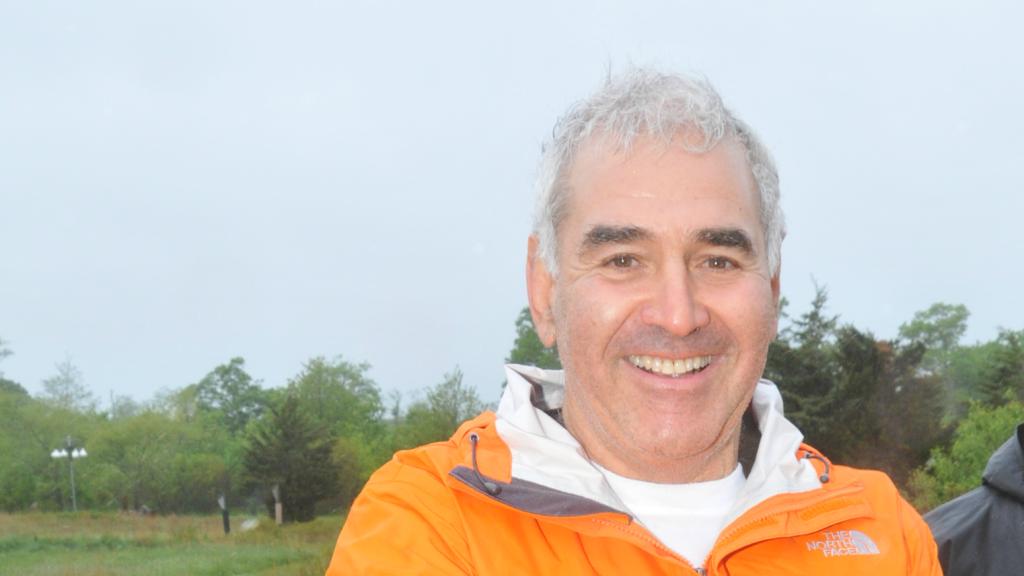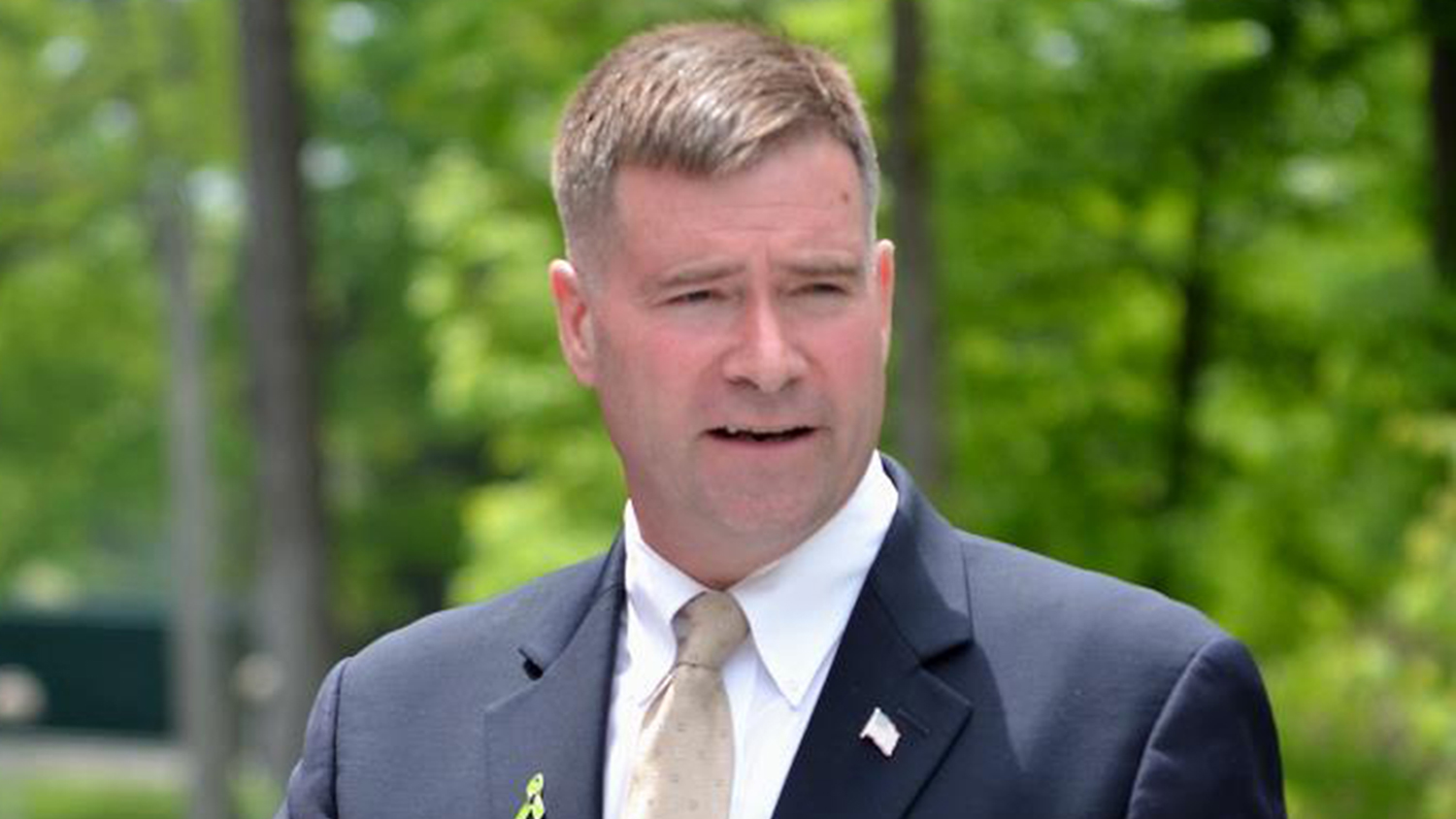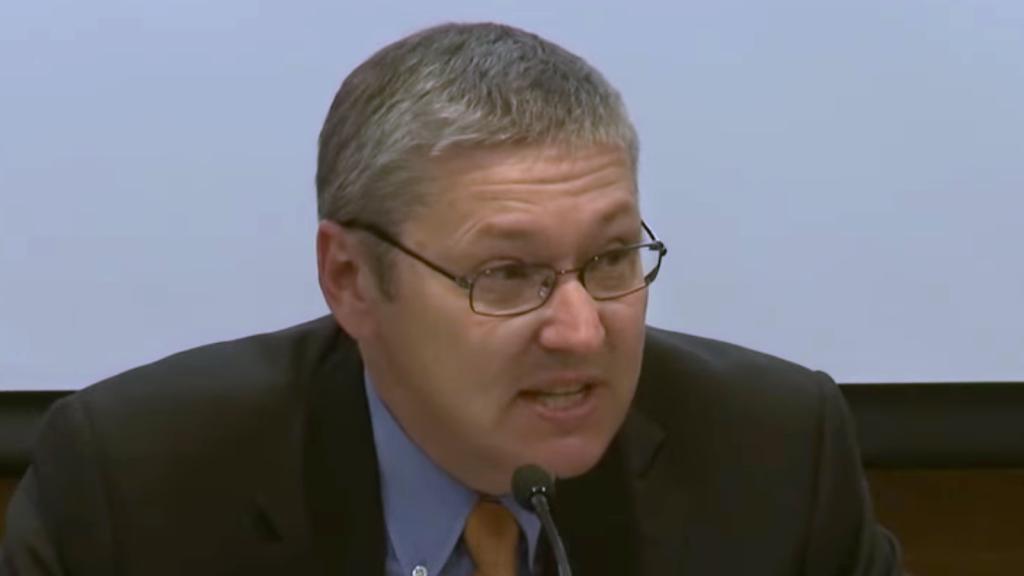See update at bottom of introduction.
Chris Gibson, a Republican congressman from upstate New York, has had some experience battling tall odds. He served in the U.S. Army from 1986 to 2000 in the Persian Gulf, Kosovo, and Iraq, earning, among other awards, a Purple Heart and four Bronze Stars. His latest long-shot mission? Convincing his GOP colleagues to join the fight against climate change.
Gibson has been among the tiny handful of House Republicans to vote in support of the EPA’s Clean Power Plan, President Obama’s signature effort to fight climate change by cleaning up the electricity sector. And in September, with the support of 10 Republican representatives, he introduced a resolution in the House acknowledging that human activities are contributing to climate change, and calling on fellow conservatives to “address the causes and effects” of this problem.
To many progressives, Gibson’s resolution may have seemed painfully obvious and vague. He says he cannot support a carbon tax or other legislative climate solutions with teeth. But given the Republican deadlock on this issue, Gibson is a certain kind of radical. We called him up to find out what exactly his resolution aims to achieve, and how he’s luring new recruits to his cause.
UPDATE: Grist conducted this interview with Gibson on Nov. 16, during which he spoke approvingly of the emission-cutting goals of the EPA’s Clean Power Plan. As recently as June, he had voted against legislation that would kill the Clean Power Plan. But on Dec. 1, he surprised many by voting for a resolution to kill the plan. On Dec. 3, Grist asked him why. He said he was now opposed to the Clean Power Plan because the EPA might require some states to implement a compliance plan that includes a cap-and-trade program. “I’m supportive of the emission goals but firm in my opposition to ‘cap and trade,’” he said. “If they withdraw and issue it separate from cap and trade, I will vote to support.”
——
Q. The COP21 climate conference is underway. What do you hope will come out of it?
A.I hope the Paris meetings will result in an international agreement — one with firm commitments from some of the biggest polluters like Russia, China, and India. This can be a boon for America because as the world begins to reach consensus on environmental standards, we’re poised to lead with innovation, with new technology that will help other countries meet their goals. If the agreement is done right, the USA will lead environmentally and benefit economically.
Q. You’ve been battling skepticism toward climate change science among conservatives. Why is this issue a priority for you?
A. If conservation is not conservative, then words have no meaning at all. The same inclination that drives me to try to get back to a balanced budget so that future generations get the same choices of freedom also drives me to protect the Earth.
Q. What about climate change in particular — why are you getting out front on this issue among Republican members of Congress?
A. I look at the fact that in my district in upstate New York we have four new invasive species in the last decade or so. Agriculture is a very big driver in my local economy, and this changing climate is impacting the agricultural economy. We have had three 500-year floods in the last several years. We had Hurricane Irene, Lee, and Sandy. So either you believe that we had a 1-in-over-100-million chance, or you believe as I do: that we have a new normal, that this is in fact a changing climate, and humans are contributing to that. By how much? Well, I’d say with humility, we don’t know. But we do know that our habits, our consumption, our use of fossil fuels, all of these things are contributing.
Q. You introduced a pro–climate science resolution in the House. What is the goal? What real action, legislative and otherwise, do you hope it will catalyze?
A. I really want to rally Republicans to the calling of being good stewards, good conservationists. I want to mobilize investments that are going to help clean energy and energy efficiencies. I want to find ways to make climate change a job creator — a significant one. There’s no reason why the Empire State couldn’t be an exporter of energy! Photovoltaics, wind power, geothermal, hydro, biomass — there is so much untapped potential.
Q. What regulatory measures do you support — a carbon tax, for example, or a cap-and-trade program — to mobilize a clean economy?
A. No, I don’t support a carbon tax or a cap-and-tax. Look, I came from a working-class family, and my dad worked in the building trade, and we got crushed when our energy prices went up in the 1970s. It really hurt our family. I’ve had some people show me some analysis — that we could impose a carbon tax but balance it by lowering other taxes like Social Security. Well, what happens, then, to Social Security? Our focus now must be to convince enough Republicans that what is good for the economy and foreign policy is good for the environment. That’s where there’s consensus. The minute we start talking about taxes, this thing breaks down. There’s more positive momentum to be gained by focusing on the things we agree upon.
Q. But the impacts of climate change could hurt working Americans much more than a carbon tax. Scientists are saying that we need to make sharp and immediate emission cuts to keep warming below 2 degrees Celsius. Can your approach really make a difference that’s big enough and fast enough?
A. Yes, I believe it can. We’re already over halfway to the [EPA’s] goal [of cutting emissions from power plants]. The goal, initially, was to cut by 30 percent [below 2005 levels] by 2030, and now 32 percent by 2030. We’re already halfway to the goal now. There’s every reason to believe that we can reach this goal, and we can do that without cap-and-trade.
Q. Why is there so much infighting and polarization within the Republican Party on the climate issue, do you think?
A. There’s still a lot of concern about bad tax policy. There are too many Republicans that think when we talk about climate change we’re talking about bad tax policy.
Q. What kind of response did you get from colleagues on your resolution? Is a critical mass of support emerging among conservatives for federal action of some kind on climate change?
A. Oh yes! I have not faced any animosity in the Republican caucus on this bill. I have 11 other Republicans cosponsoring the bill and those numbers are going to grow — I have more interest in the caucus. And you’re going to see diversity in terms of who comes on the bill, folks from across the Republican caucus.
Q. What methods are you using to recruit new support?
A. Back home, the media coverage of this effort has been universally positive — and I share that with my colleagues. I say, Look, if you’re concerned about how the media’s covering this, it’s all positive. I tell them I have people in my district that rank far left, far right, and everybody in between, and I have earned the respect and the support of my district across party lines. I say, Look, this is where the science is; this is where good stewardship is, which is what conservatives should be for; this is where the media support is; this is where our constituents are — even among our base.
I say, Think about the smart investments we’ve made in the past — for example, during the Cold War — and remember the positive collateral that we got. I remind them that our response to the Cold War led to the invention of the computer and it ushered in the internet and the Information Age. If we make positive investments in solving climate change, you will see energy innovation, you’ll see democratized energy, and it’ll be good for our foreign policy, it’ll help our self-reliance and independence, and it’ll be good for the environment.
I say, Let’s focus on the consensus: Science shows that we are contributing to climate change, why fight over how significant the contribution is? Let’s have humility and focus on being good stewards. Let’s change policies in a way that reflects this humility.
And I remind them that I’m a former soldier and I make sense, I think, because soldiers really have to live in the real world, we have to be reality-based, because bullets rip through flesh. And so, given the fact that the science points to this changing climate, this is reality.



